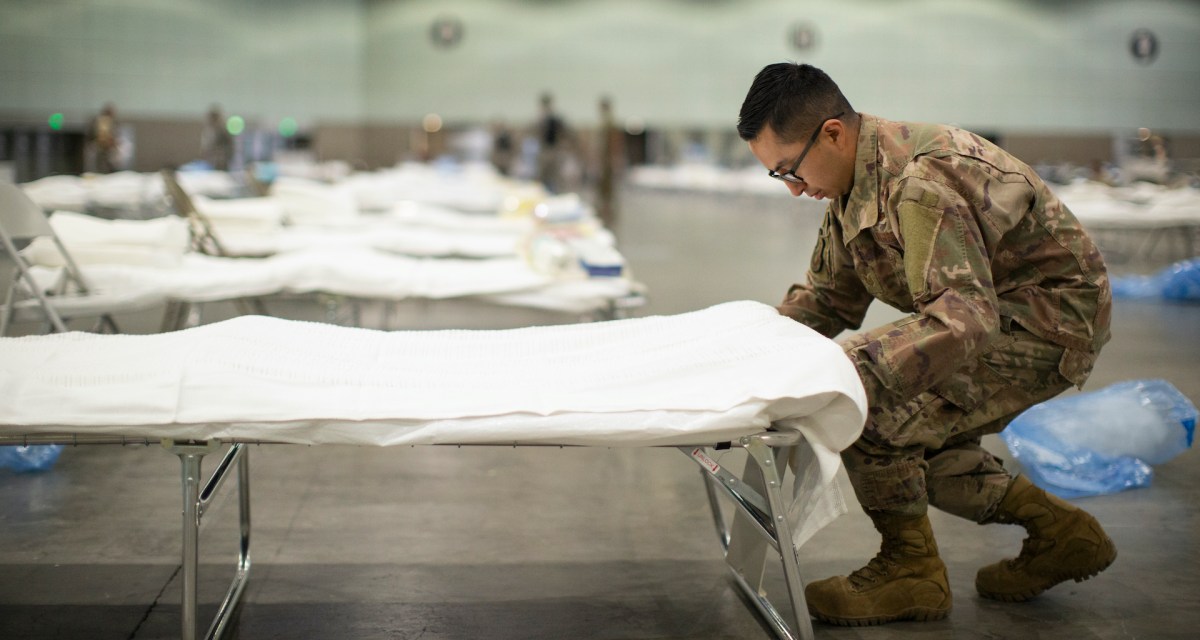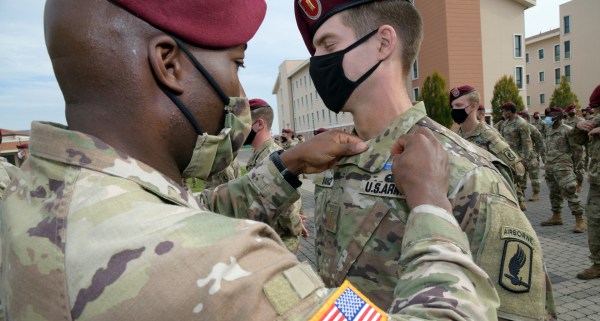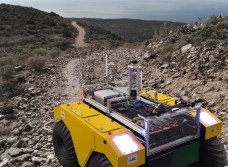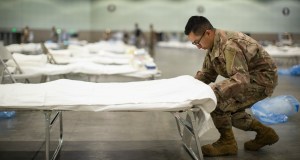Army wants help with virtual critical-care services in COVID-19 field hospitals

The Army is looking for help in creating “virtual critical care wards” in the new field hospitals that the military and aid groups are building around the country in response to the novel coronavirus pandemic.
The goal is to scale up existing critical-care telemedicine technology in hospitals so it can be linked to the field hospitals, according to a presolicitation released Monday. The new National Emergency Telecritical Care Network (NETCCN) will be “a cloud-based, low-resource, stand-alone health information management system,” according to the Army.
The Army will have between $30 million to $37 million to offer up to six awardees, according to the document.
Most of the technology is already available, but the Army wants to be able to rapidly scale it to help coronavirus patients “wherever there is need,” according to the notice which was issued by the Medical Technology Enterprise Consortium (MTEC), which fields emerging medical technology for the Army.
“These high acuity, virtual wards would bring high-quality critical care capability to nearly every bedside, be it healthcare facility, field hospital, or gymnasium,” in cities and rural medical facilities, the announcement states.
MTEC is using an “enhanced White Paper” method to quickly screen ideas and get funding to workable solutions as fast as possible.
“Enhanced white papers should specifically address providing EXISTING technologies available for other use cases that can be rapidly adapted to establishing a National Emergency Tele Critical Care Network (NETCCN),” the Army says.
Areas of interest include mobile communications networks, building clinician mobile web portals, using real-time data collection and leveraging cloud-based information storage.





